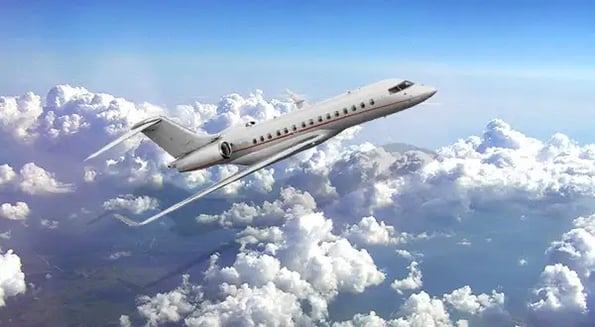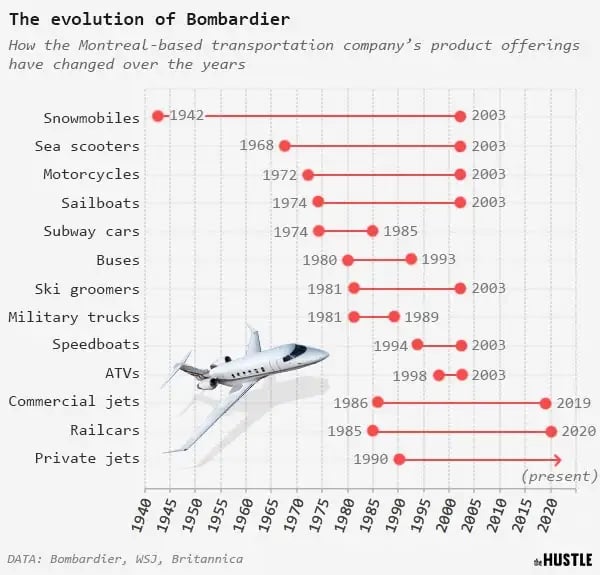The Montreal-based transportation company Bombardier Inc. sold off its train division to the French transportation giant Alstom last week for $8.2B.

Now, Bombardier is basically a one-trick pony: Its one trick just happens to be making luxury private jets.
But Bombardier used to make a little of everything
After Joseph-Armand Bombardier’s son died in a tragic snowstorm, he invented a forerunner to the famous Ski-Doo. Then, in 1942, he founded a company to sell his snow machines.
In the following decades, Bombardier developed and sold a range of vehicles developed for snow, land, sea, rail, and sky:

But by the 2000s, more specialized competitors began to challenge Bombardier’s marvelous multi-vehicular empire.
And Bombardier has had to downsize big time
In 2003, Bombardier was forced to sell its recreational product lines (snowmobiles, ATVs, sea scooters, etc.) to a group of investors led by Bain Capital to focus on its bread and butter: trains and planes.
But Bombardier, which has struggled to compete with transportation giants since, continued paring down its train and plane businesses, most recently with the sale of its commercial jet business to Mitsubishi in 2019 and its train business to Alstom last week.
Now, all Bombardier has left is its private jet business
And investors have mixed feelings about jettisoning everything but the jets: Bombardier’s shares swung up as much as 12% and then down as much as 10% in Toronto before closing down just slightly on Monday.
Bombardier’s CEO declared the company’s turnaround a success, but skeptical analysts also told Bloomberg that Bombardier “could be more susceptible to the financial cycles tied to the business aircraft market” without its portfolio of all types of planes and trains.
